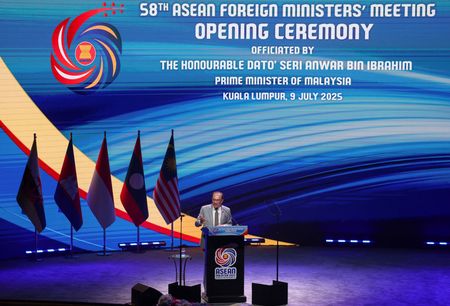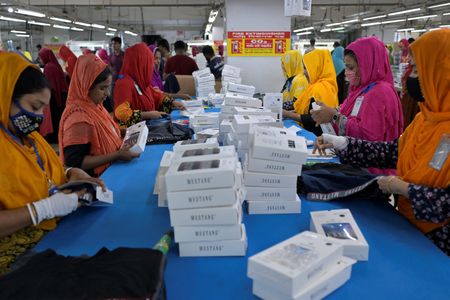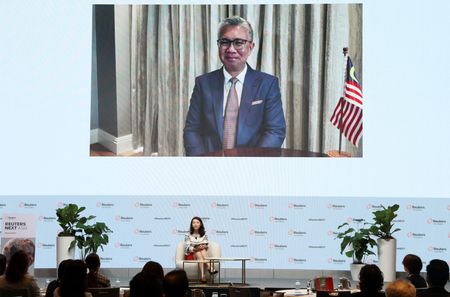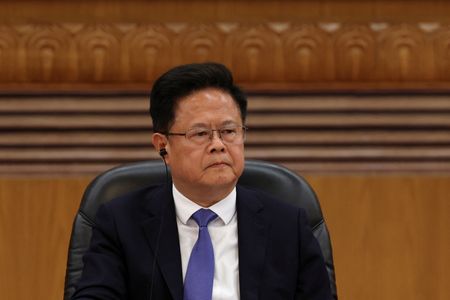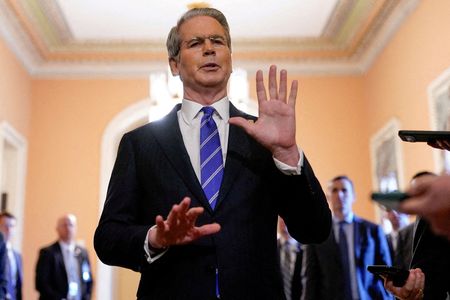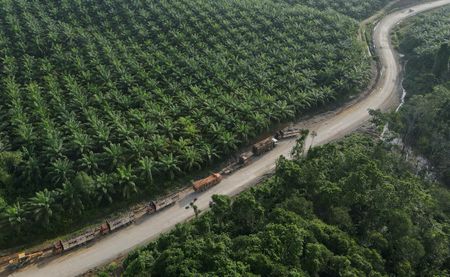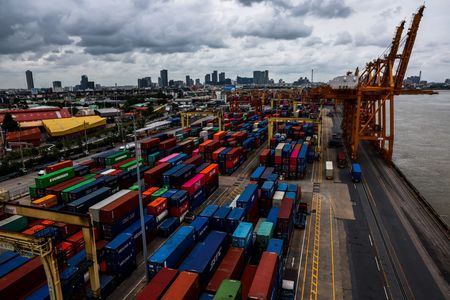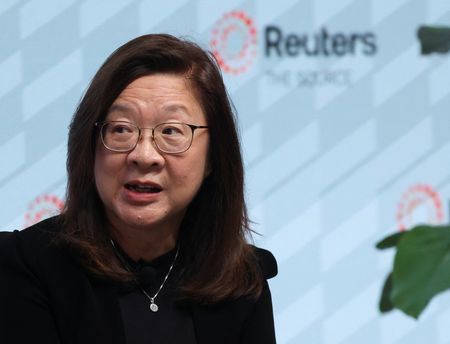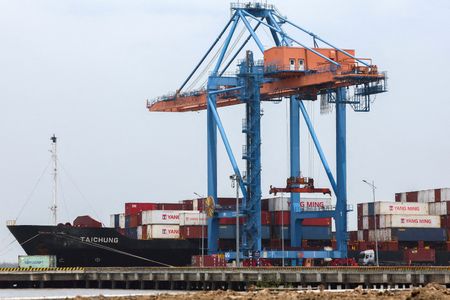By Danial Azhar and Rozanna Latiff
KUALA LUMPUR (Reuters) -Malaysia’s Prime Minister Anwar Ibrahim on Wednesday urged Southeast Asian countries to “act with purpose” and enhance trade among each other in the face of global uncertainty, as regional foreign ministers met amid renewed jitters over U.S. trade tariffs.
Anwar, addressing ministers of the 10-member Association of Southeast Asian Nations, described tariffs, export restrictions and investment barriers as “the sharpened instruments of geopolitical rivalry”. He did not mention the United States specifically.
“As we navigate external pressures, we need to fortify our internal foundations. Trade more among ourselves, invest more in one another, and advance integration across sectors with resolve,” he said.
“As global conditions remain uncertain, there is no overstressing the need to act with purpose in our own region.”
U.S. President Donald Trump on Monday announced hefty levies of between 25% and 40% on six Southeast Asian countries, despite concerted efforts by some to offer broad concessions and negotiate lower rates.
The export-reliant ASEAN is collectively the world’s fifth-biggest economy, with some members beneficiaries of supply chain realignments from China. Only Vietnam has secured a deal, which lowers the levy to 20% from 46% initially.
Indonesia, Thailand and Malaysia are seeking further talks ahead of the tariff implementation on August 1.
The gathering in Kuala Lumpour will be include a flurry of meetings between ASEAN and its major trade partners, including the United States, China, Japan, Russia, India and the European Union.
China’s Foreign Minister Wang Yi and Russian counterpart Sergei Lavrov are expected to join from Thursday, as will U.S. Secretary of State Marco Rubio, who makes his first trip to Asia looking to smooth over relations with allies and partners rattled by Trump’s tariff strategy.
TARIFFS ‘COUNTERPRODUCTIVE’
ASEAN foreign ministers will express “concern over rising global trade tensions and growing uncertainties in the international economic landscape, particularly the unilateral actions relating to tariffs,” according to a draft joint communique seen by Reuters.
The draft, dated July 7 and before the latest tariff rates were announced, did not mention the United States and used language similar to an ASEAN leaders’ statement in May. Both said tariffs were “counterproductive and risk exacerbating global economic fragmentation”.
The bloc in April said it would not retaliate and its leaders have pledged any bilateral deals they strike with Washington would not harm fellow ASEAN members.
OCBC senior ASEAN economist Lavanya Ventakeswaran said countries including Vietnam face additional uncertainty over tariffs targeting transshipments, a measure aimed at products largely from China, with questions remaining over enforcement and implementation.
“The bottom line is that it’s going to be quite complicated moving forward,” Ventakeswaran said.
The issue has also been complicated by Trump’s initial threat of an additional 10% on tariffs on countries aligned with the BRICS grouping. Indonesia is a member, while Malaysia, Thailand and Vietnam are partner countries.
ASEAN will promote a treaty on a nuclear weapons-free zone in Southeast Asia and the meeting could also see Thailand and Cambodia seek to ease a dispute that led to a mobilisation of their troops at their border and a crisis for a Thai government now hanging by a thread.
Thai Prime Minister Paetongtarn Shinawatra has been suspended pending a court case over her leaked phone call with Cambodia’s influential former leader, Hun Sen, a conversation her opponents say undermined Thailand’s sovereignty and integrity.
The dispute puts more pressure on ASEAN to maintain a united front, amid other unresolved issues including an intensifying civil war in Myanmar and a protracted drafting of a code of conduct with Beijing for the South China Sea, a key source of geopolitical tension.
Malaysia’s Foreign Minister Mohamad Hasan on Wednesday urged all groups in war-torn Myanmar to create a conducive environment for an election.
It was not immediately clear if his remarks indicate ASEAN chair Malaysia will endorse the election, which critics have derided as a sham to entrench military rule in the absence of opposition parties.
(Reporting by Rozanna Latiff and Danial Azhar; Editing by Martin Petty)

